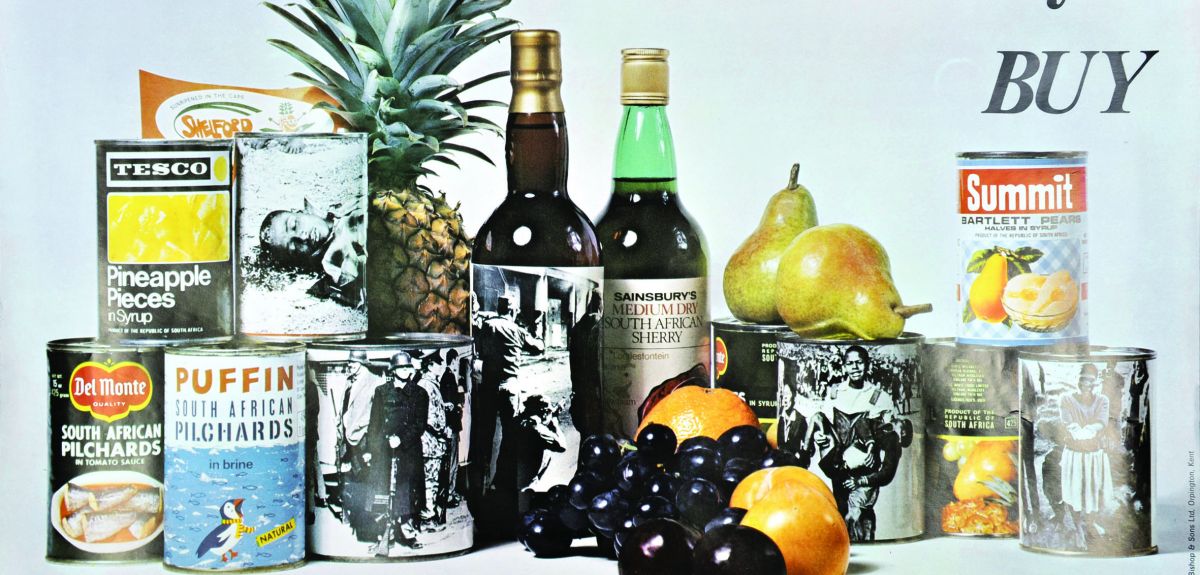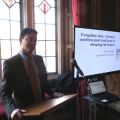
Special website for anti-apartheid archive
It was one of the biggest protest movements ever seen in the UK.
For three decades, the Anti-Apartheid Movement (AAM) campaigned for a boycott of apartheid South Africa and supported all those struggling against it.
Founded in 1959 as the Boycott Movement, the AAM grew into the biggest ever British pressure group on an international issue.
Now, 20 years after Nelson Mandela was elected as South Africa's first black president, a collection of rare documents held by Oxford University's Bodleian Library has been uploaded to a new website chronicling the history of the AAM.
Lucy McCann, archivist at the Bodleian Library of Commonwealth and African Studies at Rhodes House, said: 'The Anti-Apartheid Movement Archive at the Bodleian Library records the activities of one of the most important campaigning organisations in post-war Britain and this website makes available to all a wide selection of documents, posters, photographs, newly recorded interviews, videos and other items.
'It is of interest to those studying South Africa and British-South African relations over the period and the activities and effectiveness of campaigning organisations.'
The new website features three decades' worth of videos, photos, posters and documents relating to the AAM. Highlights include footage of the Nelson Mandela tribute concert at Wembley in 1988, iconic posters from campaigns to save those accused at the Rivonia Trial from the gallows in 1964 and to stop the Springbok cricket tour in 1970, and letters from Margaret Thatcher arguing against sanctions on South Africa.
There are also interviews with musician Jerry Dammers of The Specials, actor Louis Mahoney, David Steel (AAM President in the 1960s), and grassroots activists who talk about what motivated them to get involved and help bring down South Africa's system of white minority rule and racial segregation.
Ms McCann added: 'I think the archive is very important because for people at school now, all this happened before they were born.
'But it was a very big movement in Britain and some of the events they organised, such as the Nelson Mandela concert, were global events and were broadcast around the world.'
The website is part of a wider education project that includes a pop-up exhibition with 22 display boards on anti-apartheid campaigns and support groups.
The project is funded by the Barry Amiel & Norman Melburn Trust and the Heritage Lottery Fund.
 Latest Humanitas Visiting Professors announced
Latest Humanitas Visiting Professors announced China's Second World War: the forgotten story
China's Second World War: the forgotten story